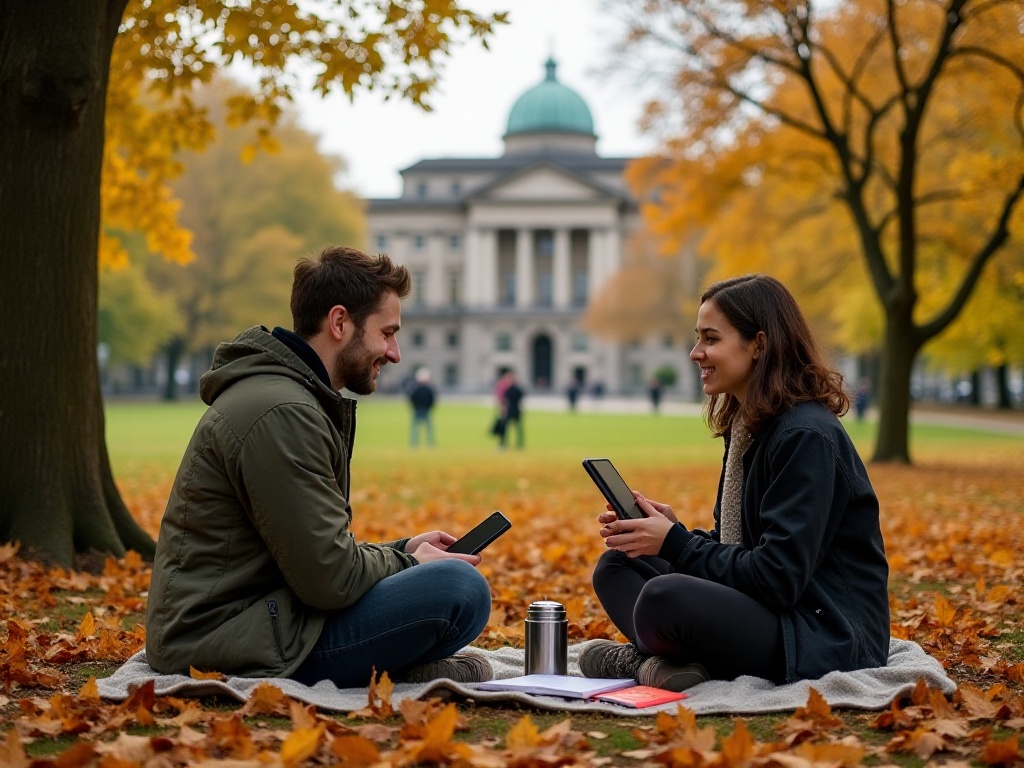
Origins
I remember my nervousness when first setting foot alone in a foreign land. It was late at night in Kyoto, Japan, dragging my luggage along empty streets, stumbling even when asking for directions. At that moment, I deeply realized: language isn't just a subject of study, but a key to unlocking another world.
Over these years, I've traveled to more than 30 countries, learning Japanese, Spanish, and Italian through travel. Each journey has confirmed my belief: the best language classroom isn't in a classroom, but on the road. Today, let me take you down this wonderful path of "learning languages through travel."
Breaking Through
Traditional language learning methods often seem daunting: memorizing vocabulary, reading textbooks, doing exercises... While systematic, this approach often yields limited results. In my experience, truly effective language learning should be fully immersive.
I remember in Granada, Spain, I chose a unique accommodation - staying with an elderly lady who only spoke Spanish. Communication was initially disastrous, but this environment where I had no choice but to speak forced my Spanish to improve rapidly. In just two months, I progressed from "mute Spanish" to being able to chat fluently with locals.
According to language learning research data, the efficiency of language acquisition in an immersive environment is 3-5 times higher than traditional classroom learning. In a completely immersive language environment, the brain is "forced" to activate rapid adaptation mechanisms, and this pressure is precisely the best catalyst.
Breaking the Pattern
How can travel truly become an effective language learning scenario? I've summarized several key strategies:
First is choosing the right destination. Statistics show that during peak tourist season, over 80% of service personnel in central Barcelona speak English. I suggest avoiding tourist hotspots and choosing smaller surrounding cities instead. There, you'll meet locals who truly only speak Spanish.
Second is creating scenarios where you must use the target language. In Florence, Italy, I enrolled in a local cooking course. Everyone except me was Italian. To learn how to make authentic Italian pasta, I had to understand the teacher's Italian instructions. Under this pressure, my Italian vocabulary increased by over 500 words in one week.
Third is making good use of "work exchange" opportunities. In Japan, I worked at a hot spring inn for a month through a work exchange program. Spending each day with Japanese colleagues, my Japanese proficiency soared. Research shows that this type of deep interactive learning has a language retention rate of 85%, far exceeding the 35% of traditional classrooms.
Advanced Level
As my language abilities improved, I discovered that travel learning could bring unexpected rewards.
In terms of cultural understanding, language is the best guide. During my time living in Japan, I gradually understood why Japanese people always speak with such indirect expressions. It turns out this is inseparable from their "wa" culture, where pursuing harmony in interpersonal relationships is central to Japanese expression.
In terms of social networking, language ability brings not just communication but deep friendships. In Spain, I met a group of local hiking enthusiasts. Weekly hiking not only practiced language but also gained genuine friendships. Now, these friends are spread across the globe, forming my most precious interpersonal network.
In career development, multilingual ability has become an indispensable competitive advantage. According to LinkedIn's latest data, job seekers who master a second foreign language have 42% higher employment opportunities than monolingual speakers, with average salary levels 15-20% higher.
Transformation
After years of travel learning practice, I deeply feel that language learning is about more than just language itself. It's a profound journey of self-transformation.
I remember one evening in Florence, Italy, chatting with an elderly painter in Italian for three whole hours. We discussed everything from the Renaissance to modern art, from Dante to modern Italian literature. At that moment, I felt that language was no longer a barrier but a bridge connecting souls.
Through learning languages by travel, my worldview has fundamentally changed. Mastering each new language is like gaining a new pair of eyes to see another side of the world. As German philosopher Heidegger said, "Language is the house of being." Through different languages, we glimpse the wisdom of existence in different cultures.
Mutual Encouragement
If you also want to start a journey of learning languages through travel, my advice is: let go of perfectionism and speak boldly. The biggest enemy of language learning isn't mistakes but silence. Know that even native speakers make 7-15% grammatical errors in daily conversation.
Based on my experience, the following points are particularly important:
Choose a suitable starting point. Don't start with unfamiliar niche destinations. Begin with cities that have relatively friendly language environments, like Salamanca in Spain or Perugia in Italy, which have numerous language schools and international students.
Make reasonable learning plans. My suggestion is: 70% time for practical communication, 20% for systematic learning, and 10% for cultural experience. According to surveys, this ratio maximizes learning efficiency, with 90% of learners reaching daily conversation level within 3-6 months.
Make good use of digital tools. I usually have 4-5 language learning apps on my phone but actually use them for no more than 1 hour daily. These tools' greatest value is reviewing and reinforcing what's learned in real life anytime, anywhere.
Future
Looking back from 2024, I increasingly feel that choosing to learn languages through travel was the right path. In this era of rapid AI development, some might ask: is it still necessary to put so much effort into learning foreign languages?
My answer is definitely yes. Because language learning was never just about communication, but about understanding and connection. No matter how powerful AI translation becomes, it can't replace the warmth of sharing family stories with an Italian grandmother, or the camaraderie of drinking with strangers in a Japanese izakaya.
Moreover, according to latest research, multilingual learning can significantly delay brain aging, with bilingual people having 24% lower risk of dementia than monolinguals. These data tell us that the benefits of language learning go far beyond what's apparent on the surface.
Conclusion
Learning languages through travel is a long but worthwhile adventure. It teaches us not just a skill, but how to embrace the world with an open mind. As my favorite Italian proverb says, "Chi lingua ha, a Roma va." (With language by your side, you can go to Rome).
Would you like to embark on a spontaneous language learning journey? Or have you already had similar experiences? I look forward to hearing your stories and thoughts. Let's learn through travel and grow through learning together.
After all, life's most beautiful scenery often lies on the path outside our comfort zone. And mastering a new language is the key to opening a new world.
Next
Learning Languages in Foreign Lands: An Immersive Experience Shared by a Travel Blogger
Explore the dynamic relationship between travel and language learning, examining how immersion enhances language skills and how linguistic abilities deepen travel experiences through cultural engagement and authentic interactions
One Person's Language Journey: Measuring the World with Footsteps, Making Travel the Best Language Classroom
Explore effective methods and benefits of learning languages through travel, combining immersive strategies with practical approaches, supported by digital tools and structured resources for enhanced language acquisition and personal growth
One Person's Language Learning Journey: My 90-Day Immersion Experience in a Rural Japanese Town
Explore how travel facilitates language learning through immersive environments, covering natural and structured learning methods, along with guidance on choosing suitable language programs and courses to enhance language skills while traveling
Next

Learning Languages in Foreign Lands: An Immersive Experience Shared by a Travel Blogger
Explore the dynamic relationship between travel and language learning, examining how immersion enhances language skills and how linguistic abilities deepen travel experiences through cultural engagement and authentic interactions

One Person's Language Journey: Measuring the World with Footsteps, Making Travel the Best Language Classroom
Explore effective methods and benefits of learning languages through travel, combining immersive strategies with practical approaches, supported by digital tools and structured resources for enhanced language acquisition and personal growth

One Person's Language Learning Journey: My 90-Day Immersion Experience in a Rural Japanese Town
Explore how travel facilitates language learning through immersive environments, covering natural and structured learning methods, along with guidance on choosing suitable language programs and courses to enhance language skills while traveling



